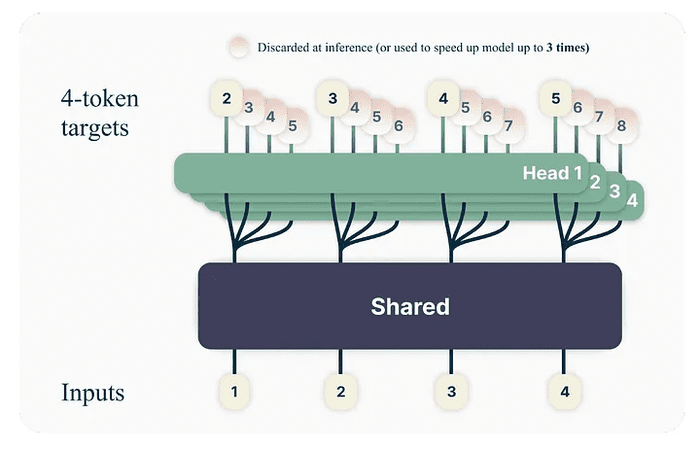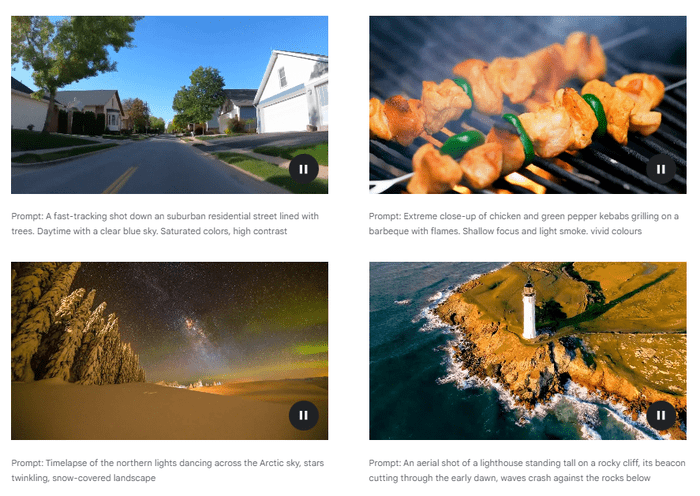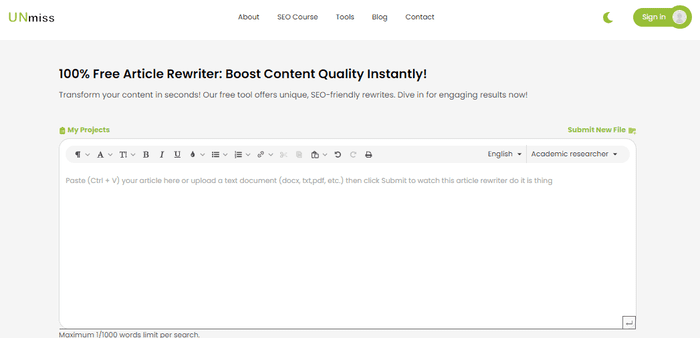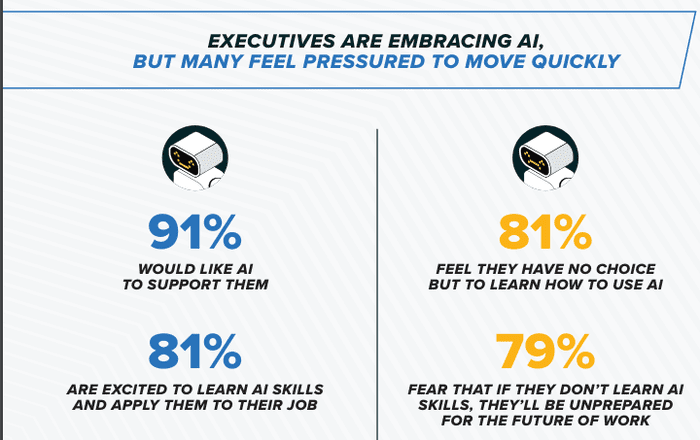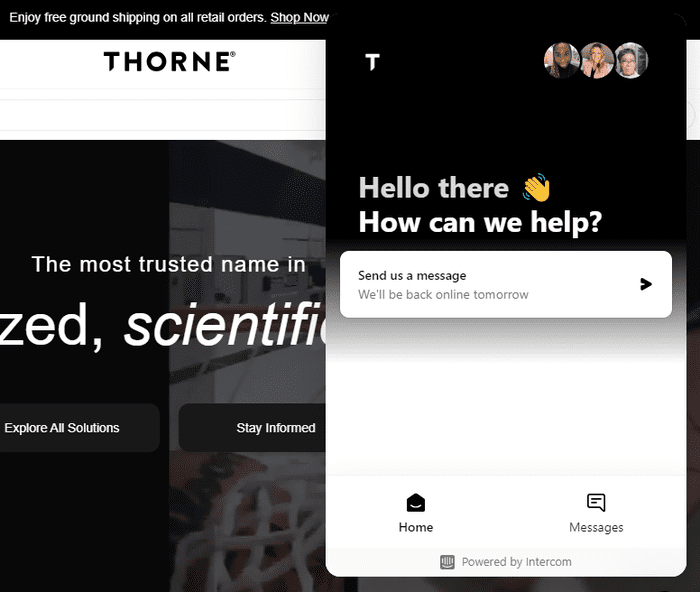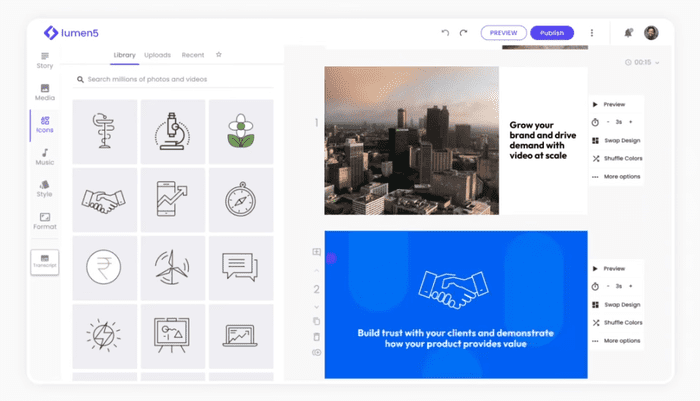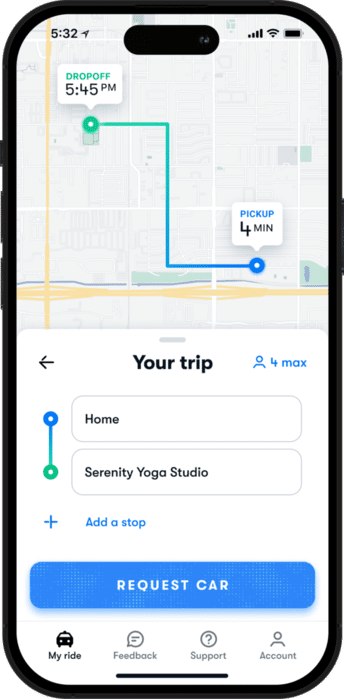The Future of AI Technology: Latest Transformative Trends and What to Expect
AI enables airlines to predict weather, doctors to foresee illnesses, and businesses to deliver personalized content at the perfect moment.
Once impossible, these advancements are now within reach thanks to artificial intelligence (AI).
AI, once a futuristic concept and a mere prediction of what technology could look like, is now a reality.
What started as technology that could tell you the latest breaking news has evolved to tackle some of the world’s greatest challenges with ease such as cancer detection, monitoring financial fraud, and improving customer service through chatbot support. AI has made a clear impact on our global society and its applications are endless.
The future of AI technology will only continue to advance, destined to become more intelligent and integrated into our daily lives.
As we reach a turning point where AI transcends what is currently possible to tackle even more complex issues, it’s important to consider what is to come in the future and how it will impact our day-to-day lives and job security.
AI has already infiltrated many industries, improving efficiency and maximizing output. AI has also been cited as a threat, with many workers wondering if robots will eliminate their positions. While this advanced technology has been praised for its benefits it’s equally important to assess its implications for human jobs as well as ethical and privacy concerns.
In this article, we’ll explore what the future of AI technology looks like, how it will expand on current transformative trends, and what we anticipate is to come. We’ll also dive into the impact AI is making across various diverse industries. We’ll also look at different AI tool options such as UNmiss’s free AI tools that help marketers boost efficiency and productivity.
Current State of AI Technology
AI technology has taken monumental strides in just the past several years, integrating into nearly every function of our lives. Machine learning (ML) and natural language processing (NLP) have gotten more intelligent and have become capable of delivering natural dialogue that closely mimics how humans converse.
As ML and NLP continue to progress in sophistication, transformer models, like GPT-4, are significantly impacting content creation and marketing in general.
Digital marketers have found AI to be a welcome ally in helping streamline and enhance numerous marketing-related endeavors, with AI systems being used in email, social media, paid advertising, keyword research, and more applications.
AI has also seen monumental advancements in hardware, such as specialized AI chips. AI chips are tens or even thousands of times faster than CPUs, designed to handle AI tasks quickly and more effectively than ever before.
Key Players in the AI Industry
There are several prominent players in the AI field, each contributing their own unique advancements in the technology. A few of these notable businesses include:
NVIDIA
NVIDIA’s strong presence in the AI industry has catapulted the company to nearly $3 trillion dollars. NVIDIA is responsible for supplying the technology to the early pioneers such as Alex Krizhevsky and Geoffrey Hinton. NVIDIA claims it’s “the world’s most advanced platform with full stack innovation across accelerated infrastructure, enterprise-grade software, and AI models”.
OpenAI
OpenAI is the creator of arguably the most popular generative AI tool, also known as ChatGPT. It is renowned globally for its advanced generative models that empower humans to streamline mundane tasks with minimal effort.
Microsoft
Microsoft has integrated AI into their Azure technology stack, introducing their AI-powered companion Microsoft Copilot. Additionally, they’ve also developed the Copilot stack, enabling developers to build their own copilots.
Meta
Meta has also remained at the forefront of advancing AI. It recently introduced five new AI models and research including multimodal text and image processing, multi-token prediction, enhanced text-to-music, AI-generated speech detection, and diversity of text-to-image models.
Transformer architecture with multi-token prediction
Amazon
Amazon’s AWS AI services can help businesses in numerous ways from increasing customer engagement to modernizing contact centers by using the same deep learning technology that powers Amazon.com.
Powerhouse Google has a large stake in the AI game, recently introducing Veo which Google claims is its “most capable generative AI video model” and “generates high-quality, 1080p resolution videos that can go beyond a minute, in a wide range of cinematic and visual styles”. The goal of this new tool is to improve the video production process for the wider public.
Illustrations of Google’s Veo AI technology
UNmiss also offers a vast range of AI-generated products to help SEOs and marketers simplify their work. A few of these tools include an Article Rewriter, Website Audit, and many more.
UNmiss’s Article Rewriter tool
Transformative Trends in AI
As AI continues to evolve, its benefits have been seen across numerous industries, each leveraging AI in their own unique ways. AI has undoubtedly transformed the way healthcare, supply chain, and marketing businesses operate. It streamlined tasks, reduced workloads, and made significant strides in solving global issues.
Here are a few examples of the future of AI technology, including transformative trends, paving the way for healthcare, supply chain, and marketing businesses.
AI in Healthcare
Every patient is unique and has their own individual concerns which is why personalized medicine has become common practice. Personalized medicine has turned to AI to custom-tailor treatment plans for individual patients.
AI can analyze a wealth of patient health-related information such as their genetics, medical history, family medical history, and more to suggest effective treatment strategies.
For example, AI can identify gene mutations and by looking at the patients’ health history and individual gene makeup, can recommend preventative measures the individual should take to avoid risk of certain diseases.
ML models trained on analyzing vast datasets of medical images can also detect high-risk diseases and illnesses such as cancers and neurological disorders with precision. Illnesses may then be caught at earlier stages and lead to better patient outcomes.
As with any AI technology, it’s particularly crucial for healthcare businesses to ensure AI augments and enhances human work but doesn’t completely displace the expertise and experience of healthcare workers.
AI in Business
AI has become fully integrated into many diverse business applications, with 77% of c-level executives saying AI is disrupting their business strategy. Additionally, 81% of the same C-level executives surveyed say they don’t have a choice but to learn how to adapt to and effectively use AI.
As more business leaders see the value in turning to AI to streamline operations and simplify automated tasks, the need to upskill employees on using AI ethically will become more important than ever before.
Savvy businesses are using AI for more than just automating routine tasks. They’re using it for numerous purposes which include:
- Forecasting: A once mundane, manual effort has now gotten much quicker thanks to AI helping businesses parse through data to identify trends and historical figures to gather valuable insights for predicting future trends, determining revenue goals, and ensuring ample supply for customer demand.
- Customer Analysis: AI can sift through a wealth of customer data and distill the key insights such as buying behavior, preferences, and anticipating what they’ll need next. By having a deeper understanding of your target audience, your business can tailor and personalize the customer experience more effectively, leading to improved acquisition and retention.
- Operations: On an operational level, AI can identify and detect problems before they occur. For example, a machine may be near a breakdown and AI will have the foresight to recommend fixing the issue before it takes place, leading to less or no downtime that may impact your business’s bottom line.
- Customer Service: Long gone are the days of always having an agent on standby. AI has replaced the need for some customer service roles and is capable of handling low-risk requests like addressing a frequently asked question.
- Workflows: AI can be used for mundane tasks such as scheduling meetings and managing approval processes, eliminating work that once was tedious. For example, AI can automatically reject an approval if it detects certain words or other disqualifying elements.
AI chatbot example on Thorne.com
How to Integrate AI Effectively into a Business
For those in the business industry, upskilling employees entails creating a comprehensive AI integration strategy to ensure its efficacy and safe usage. A few ways to ensure a streamlined deployment include:
- Creating an AI Committee: Form a team of AI-trained employees who have a deep understanding of AI technology.
- Identify the Why: Incorporating AI for the sake of incorporating AI won’t lead to the best outcomes. Determine how and why your business will benefit from using AI. Start with smaller projects and tasks that AI can help with before tackling bigger initiatives.
- Find the Right Solution: There are myriad AI solutions out there and not every solution will work for your business. Once you’ve determined how AI will help your business, it’s important to consider the different vendors available to you and their pros and cons.
- Understand AI Safeguards: AI is governed by strict regulations ensuring user safety and privacy. It’s crucial to familiarize yourself with AI-related ethics and regulations prior to integrating AI into your business to protect your customers.
- Develop a Plan: Implementing AI into your operations requires careful thought and execution. Consider the steps you’ll need to take pre- and post-integration to ensure success. It’s also important to measure the effectiveness of your AI efforts to ascertain its effectiveness.
- Train Employees: AI is a relatively new technology. While the future of AI technology in the business realm will likely look like every employee has a fundamental understanding, right now the reality is it’s still a new space for most. Ensure your employees are set up for success by providing adequate training.
- Update Your Employee Handbook: Make it clear to employees in writing how your business uses AI, its applications within your workplace, and expectations for employees around its usage.
AI in Content Creation and Marketing
AI has completely reshaped the content creation and marketing industry by delivering exceptional and quick results that nearly mimic the work of a human. Marketers are able to deliver superior quality content to customers and at a quicker pace than possible pre-AI.
The marketing field has perhaps seen the greatest return on using AI of any other industry, finding use cases in social media, email, paid, and content marketing. AI technology enables marketers to reach their customers and engage with them in a more meaningful way.
AI A/B Testing Example using HubSpot
Here are a few ways AI is impacting content creation and marketing in general:
- Content Creation: AI enables content marketers to create high-quality briefs in the matter of minutes to provide writers with clear SEO guidance. It can also produce social media and email copy quickly, helping marketers keep up with the demand for consistent content across multiple mediums. This allows marketers to establish regular touchpoints with their audience.
- Email Marketing: AI can help marketers personalize email copy, such as including the recipient’s first name in the subject lines. It can also send two different versions of an email to a small sample size, test to see which is performing best, and send the better version to the rest of your list.
- Video Marketing: AI is becoming more advanced than ever in the video marketing realm, and we anticipate this trend to continue. For example, video production platforms like Lumen5 can turn blog posts into videos, interpreting the key points and delivering videos with relevant visuals that require little to no rework.
- Interactive Content: Polls and quizzes are unique, interactive forms of content marketing that highly engage and motivate users. AI can help revolutionize the way consumers use poll and quiz functionality, adapting questions and next steps based on the user’s responses.
- Grammar: AI-powered tools like Grammarly use AI to deliver exceptional feedback for grammar, tone, clarity, and other writing suggestions to make your content stronger. It can also generate text based on the user’s prompt.
- Data Analysis: Parsing through vast amounts of data becomes easier when leveraging AI technology. AI can quickly pull valuable customer insights that would take humans ample time to extract. It can also translate these insights into actionable takeaways for marketers to act on.
There are many other use cases for AI in the marketing and content world. The future of AI technology only stands to grow more advanced in this industry and soon marketers will be able to accomplish their goals with even greater ease.
What to Expect in the Near Future
The future of AI looks bright, with reports anticipating AI could contribute up to $15.7 trillion to the economy in 2023. The same report anticipates $6.6 trillion of this will likely be due to increased productivity and $9.1 trillion will likely be attributed to consumption-side effects.
In the near future, AI will fuel global economies largely driven by:
- Productivity gains from businesses automating processes, thereby reducing the need for human employment (such as the use of robots for blue-collar work and autonomous vehicles displacing the need for human drivers like taxis and Uber drivers).
- Productivity gains from businesses complimenting and working alongside their existing human workforce with AI technologies.
- Consumer demand will continue to expect more tailored experiences which will necessitate higher-quality products and services powered by AI.
Analysts anticipate AI will completely disrupt businesses, transforming productivity in ways the human workforce simply couldn’t accomplish. For businesses that don’t integrate AI in their businesses in the near future, they may find themselves falling quickly behind resulting in loss sales, less productivity, and lagging while their competitors surge forward.
For example, the self-driving car service Waymo is making significant strides in the way consumers get around, eliminating the need for a human driver to transport riders.
Similar to popular rideshare services like Uber and Lyft, Waymo riders enter their desired location and Waymo’s autonomous driving technology powers transportation. Reports cite this disruptive AI-powered technology will generate around $50 million in revenue this year alone.
Waymo app interface
The cost of failing to adopt AI will soon be significant for various businesses across diverse industries. Consumer behavior and demand have already shifted to expect and engage with products and services that are higher quality and more personalized.
AI can significantly enhance personalization efforts, as we can already see in the way businesses approach content recommendations such as Goodreads does with books or Netflix does with shows based on personal information and consumer behavior.
While there may be some job displacement as AI technology continues to progress, it will also bring about new job opportunities, particularly for those with knowledge of how AI works and how it’s developed.
Undoubtedly, AI technology will continue to impact and transform how we live, operate, purchase, and engage with businesses. The future of AI technology will entail enhancing the hard work that’s already been accomplished, rather than focusing on new applications, at least in the near term.
For marketers and SEOs who want to get ahead and outshine their competitors, leverage UNmiss’s suite of AI-powered tools that are designed to streamline multiple facets of your SEO strategy.




